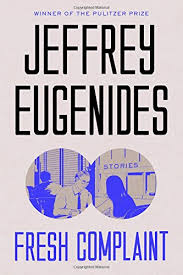One Man’s Dollar Bin Library
With bookstores and libraries either closing or limiting the number of people allowed inside during the 2020 Covid-19 pandemic, avid book readers were faced with a dearth of browsing opportunities. You could either poke around on Amazon or Barnes & Noble online or cruise over to your friendly neighborhood dollar store and discover a new world of remaindered and forgotten books. Most represented the lowest of lowbrow genre publishing. - the unreadable dreck of sappy teen romance novels, geeky fanboy sci-fi fantasies, unimaginative horror novels featuring post-Twilight compassionate vampires and Walking Dead franchise derivative brain-eating zombies, “inspirational” self-help books, vapid sports “as told to” biographies by ex-jocks, and right-wing conservative rewrites of history (hello Bill Reilly!) - while only a scant few were true literary finds. But it’s the score that thrills at the dollar store.
Following is the library I amassed in 2020 for less than $10, including tax, at my friendly neighborhood Dollar Tree.
- Kudos - a novel by Rachel Cusk
Kudos may have been the final book in Rachel Cusk's Outline trilogy, but it was my introduction to her radical reinvention of "the narrative voice" in literature. The entire novel is connected by a succession of overheard conversations, statements taken at face value with no look inside their heads, no inner voices. "Human lives can be governed by narrative," she writes, "and all events that occur are merely our interpretation of events that created that illusion." This was not an easy read, yet I found myself writing down passage after passage (e.g., "History goes over the top like a steamroller...crushing everything in its path, whereas childhood kills the roots. And that is the poison...that seeps into the soil" ) intrigued by the Kafkaesque minimalism of detail: no concrete descriptions of the city, airline, buildings; no proper names ("the man," "the hostess," "the interviewer," "the publicist," "the wife"). Everything seemed very general and non-specific, archetypal, like myths and fables. Our capacity for telling stories (narratives) informs the lives we want to live or to be seen living. But they remain stories and nothing more, for no one can truly get inside another person's head - that is the "lie" in fiction that writers use to tell "truths." But it is merely one technique. First person, third person, point of view - all are merely tricks of the trade. Along the way, Cusk pens so many great lines:
"It is only when it's too late to escape that we see we were free all along."
"No more ambition than a colony of seals, who go where nature directs them."
I ended up reading the other two entries in the trilogy and found that the narrator did, in fact, have a name, and that the author did end up using some other names and some additional (albeit sparse) details, but overall the effect was that of a fly-on-the-wall observing conversations as they were uttered, and the narrator (an obvious stand-in for Cusk herself) reflecting on still more stories recalled and their meaning, if any. - A Kim Jong-Il Production by Paul Fisher
- The High Places - stories by Fiona McFarland
- The Assassination of Margaret Thatcher - stories by Hilary Martel
- The Kingdom of Speech by Tom Wolfe
- Fresh Complaint - stories by Jeffrey Eugenides
This is a collection of 10 stories by the Pulitzer Prize-winning author of Middlesex that NPR claimed "showcase his ability to write convincing female characters, his sensitivity to spouses and artists under duress, and his compassion for people who disappoint themselves as much as each other. Although not thematically linked, a recurring concern is what happens when basically good people succumb to temptations and pressures and behave badly." Or stupidly, I might add, in the case of the title story, in which a book-touring college professor makes the mistake of having an ill-fated tryst with a flirtatious teenager trying to foil her Indian family's plans for her arranged marriage by losing her virginity to a stranger and thus taking herself off the market. She loses her virginity but gains her freedom, while the professor loses everything in a moment of lust. I didn't read Middlesex or The Marriage Plot, but characters from these two Eugenides novels make appearances here, as well: Middlesex "sexologist" Dr. Peter Luce (hmm, "Loose Peter"?) turns up in "The Oracular Vulva" and The Marriage Plot's soul-searching religious studies major Mitchell seeks "spiritual and intestinal transcendence" in Thailand. Speaking of gut-wrenching prose, NPR's review observes that "Eugenides writes with his heart, but also his nose. Bathrooms and foul odors pervade this collection — bad breath, mildew, the lingering scent of elderly homeowners, the stench of diarrhea." Hmm, having just had a colonoscopy, I can't wait to dive into my element in the stories collected here! - Walter Potter’s Curious World of Taxidermy by Dr. Pat Morris with Joanna Ebenstein








No comments:
Post a Comment